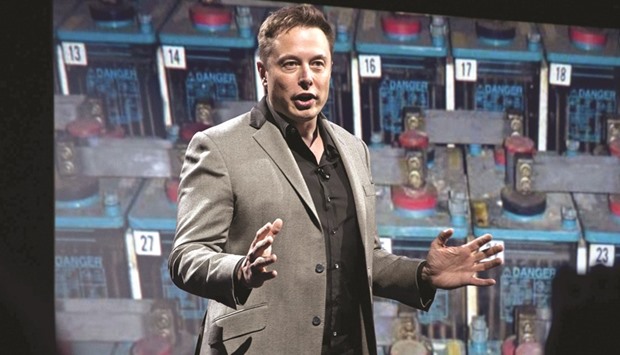SpaceX is developing an interplanetary rocket and capsule to transport large numbers of people and cargo to Mars with the ultimate goal of colonising the planet, company chief and tech billionaire Elon Musk said yesterday.
Musk outlined his plans for a massive Mars rocket, capable of carrying 100 passengers plus cargo per voyage.
Though he said he envisions humans living in a large colony on Mars, he added that the key will be getting the cost down low enough to attract willing volunteers.
“You can’t create a self-sustaining civilisation if the ticket price is $10bn per person,” he said.
“Our goal is to get it roughly equivalent to cost of a medium house in the United States, about $200,000.”
SpaceX, which Musk founded specifically with the purpose of colonising Mars, is one of several private and government funded ventures vying to put people and cargo on the red planet and other destinations beyond Earth’s orbit.
The nearly airless planet is typically around 140mn miles from Earth and landing the first humans there, after a six to nine month journey, is an extremely ambitious goal for anyone.
Amazon.com founder Jeff Bezos’s Blue Origin space venture is designing a heavy-lift vehicle and capsule called New Armstrong, that will be capable of Mars transport, according to company President Rob Meyerson.
He spoke during a separate presentation at the International Astronautical Congress meeting in Guadalajara, which Musk addressed yesterday.
The US government is also stepping up efforts to venture beyond the moon.
The National Aeronautics and Space Administration’s heavy-lift Space Launch System rocket, expected to cost $7bn through its first test flight, is currently slated for launch in 2018.
The US space agency also is developing an Orion deep-space capsule, at a cost of more than $11bn.
Between 2005 and 2010, Nasa spent another $5.8bn on an earlier version of Orion.
Russia plans a heavy-lift rocket and crewed spaceship for travel to the moon and other destinations, Vladimir Sointsev, director of Russia’s RSC Energia, said at the conference on Monday.
The capsule, called the Federation Crew Transportation Vehicle, is targeted for an unmanned test flight to the International Space Station in 2021.
Musk did not say how much it would cost SpaceX to develop its Mars transportation system.
SpaceX intends to fly to Mars about every 26 months when Earth and Mars are favourably aligned for flight.
Musk said he would like to land people on Mars as early as 2024.
Nasa’s first human mission to Mars is expected about a decade later.

Elon Musk: plans to build a massive Mars rocket.
